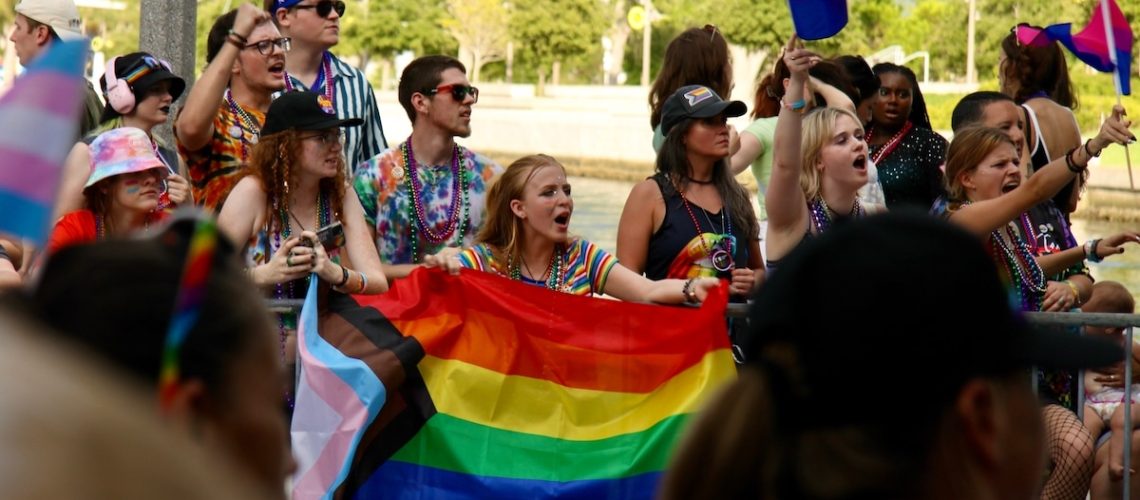In a move that has sparked both outrage and confusion, Florida’s tourism agency, Visit Florida, quietly removed its LGBTQ+ travel section from the official state website.
This section previously highlighted LGBTQ-friendly destinations, events, and accommodations, showcasing spots like Key West, Fort Lauderdale, and St. Petersburg—regions celebrated for their welcoming atmospheres toward the LGBTQ+ community.
This subtle deletion has added fuel to the ongoing debate about Florida’s relationship with its LGBTQ+ residents and visitors, raising questions about the state’s broader cultural direction under the leadership of Governor Ron DeSantis.
A Subtle But Impactful Removal
The removal of the LGBTQ+ travel information occurred without any public announcement or official explanation, but it didn’t take long for residents and activists to notice the change. What once was a dedicated resource, filled with helpful guides for LGBTQ travelers, has now been stripped down, leaving many wondering about the state’s motivations.
Keith Blackburn, president of the Greater Fort Lauderdale LGBT Chamber of Commerce, expressed his frustration with the decision. “It’s just disgusting to see this,” Blackburn said, noting that the removal feels like part of a larger trend to marginalize the LGBTQ+ community in Florida. “They seem to want to erase us.”
The Visit Florida website previously described the state as a welcoming place for LGBTQ tourists, highlighting a sense of “freedom” in its beaches, warm weather, and inclusive communities. That language is now conspicuously absent. What remains are only fragments—LGBTQ-friendly business listings can still be found through direct search queries, but the cohesive narrative of Florida as an inclusive destination has been lost.
A Broader Political Context
This removal did not occur in a vacuum. Over the past few years, Florida has seen a wave of policies that many view as targeting the LGBTQ+ community. Governor Ron DeSantis has championed a number of controversial initiatives, including the “Don’t Say Gay” law, which restricts the discussion of sexual orientation and gender identity in schools, and a ban on gender-affirming care for minors. DeSantis has also supported legislation aimed at limiting drag performances and ensuring that children are not exposed to them.
These policies have contributed to a broader sense of alienation for Florida’s LGBTQ+ residents and visitors. Several civil rights groups have already issued travel advisories, warning that Florida is “openly hostile toward African Americans, people of color, and LGBTQ+ individuals.”
The removal of the LGBTQ+ travel section appears to fit into this larger picture of Florida distancing itself from the LGBTQ+ community, and for many, it feels like another step toward marginalization.
Economic Implications for the State
Florida’s tourism industry is a massive economic driver, bringing in over 141 million visitors in 2023 alone and generating more than $102 billion in revenue.
A significant portion of these visitors has traditionally come from the LGBTQ+ community, which has long viewed Florida, especially cities like Key West and Fort Lauderdale, as top-tier travel destinations.
The quiet removal of LGBTQ+ travel information is more than just a symbolic action—it could have very real economic consequences. Blackburn, who works closely with LGBTQ+ businesses and tourists, noted that it’s becoming increasingly difficult to promote South Florida as an inclusive destination. “On one level, it’s embarrassing to have to explain why people should come to South Florida and our destination when the state is doing these things,” Blackburn remarked.
Local business owners in places like Wilton Manors, a city known for its LGBTQ-friendly environment, are feeling the pressure. Many tourists are reconsidering their plans to visit the state, not because of the destinations themselves, but because of the state’s political climate. The question on many travelers’ minds is whether they should support a state that appears to be distancing itself from LGBTQ+ inclusivity.
A Divisive Future
The response to the removal has been swift and polarized. LGBTQ+ advocates see it as an unnecessary and harmful erasure, while supporters of the state’s conservative policies argue that it’s simply a reflection of Florida’s changing cultural and political landscape. John Lai, chair of Visit Florida’s board, did not respond to requests for comment, and neither did Dana Young, the agency’s CEO(
For many in the tourism industry, the situation feels like a tightrope walk. Cities like Key West and Fort Lauderdale pride themselves on being LGBTQ-friendly, with a long history of hosting events like Pride festivals and offering LGBTQ+ inclusive experiences. However, as the state government continues to push policies seen as hostile to the community, the tension between promoting these destinations and navigating state politics becomes increasingly difficult to manage.
A Warning for the Future?
The removal of the LGBTQ+ travel section from Visit Florida’s website might seem like a small change, but its implications are far-reaching. It signals a larger shift in the state’s cultural stance, one that could have profound consequences for its reputation as an inclusive tourist destination.
As more potential visitors reconsider their trips to Florida, the state’s tourism industry could face significant backlash—not just from the LGBTQ+ community, but from anyone concerned with inclusivity and equality. As Blackburn aptly summed up, “It’s difficult when these kinds of stories come out, and the state does these things… we hear people calling for a boycott.”
The message Florida sends to its residents and visitors in the coming years will likely shape its cultural and economic future, for better or worse.
This article was first published on Pulse of Pride.
Feature photo credit: Shutterstock/ Anastasiia Shadrina. The images used are for illustrative purposes only and may not represent the actual people or places mentioned in the article.
For transparency, this content was partly developed with AI assistance and carefully curated by an experienced editor to be informative and ensure accuracy.

